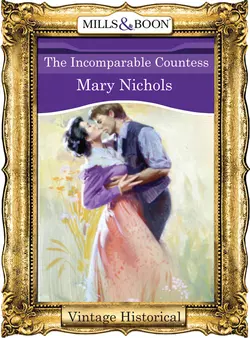The Incomparable Countess

Mary Nichols
Тип: электронная книга
Жанр: Современная зарубежная литература
Язык: на английском языке
Стоимость: 150.68 ₽
Статус: В продаже
Издательство: HarperCollins
Дата публикации: 16.04.2024
Отзывы: Пока нет Добавить отзыв
О книге: For one long, hot summer Frances and Marcus had meant everything to each other. And then he betrayed her by marrying someone else. At seventeen, Frances had possessed an inner fire, a joy of life. Now, years later, Marcus, Duke of Loscoe, is confounded by the ice-cold society hostess she has become.Having learned how to suppress her youthful dreams and desires, Frances, Countess of Carringham, can′t deny she′s pained to hear that Marcus is looking for a new wife to care for his motherless child. Nor can she disguise that she is still susceptible to his charm….